The next two weeks for Japan will be crucial.
In the fight against COVID-19, the country unfortunately has two swords hanging over its head: A cruise ship and an Olympics year. The Diamond Princess cruise ship quarantine has drawn much concern and criticism internationally, while the 2020 Tokyo Olympic Games seems to be distracting the government from preventing a larger outbreak.
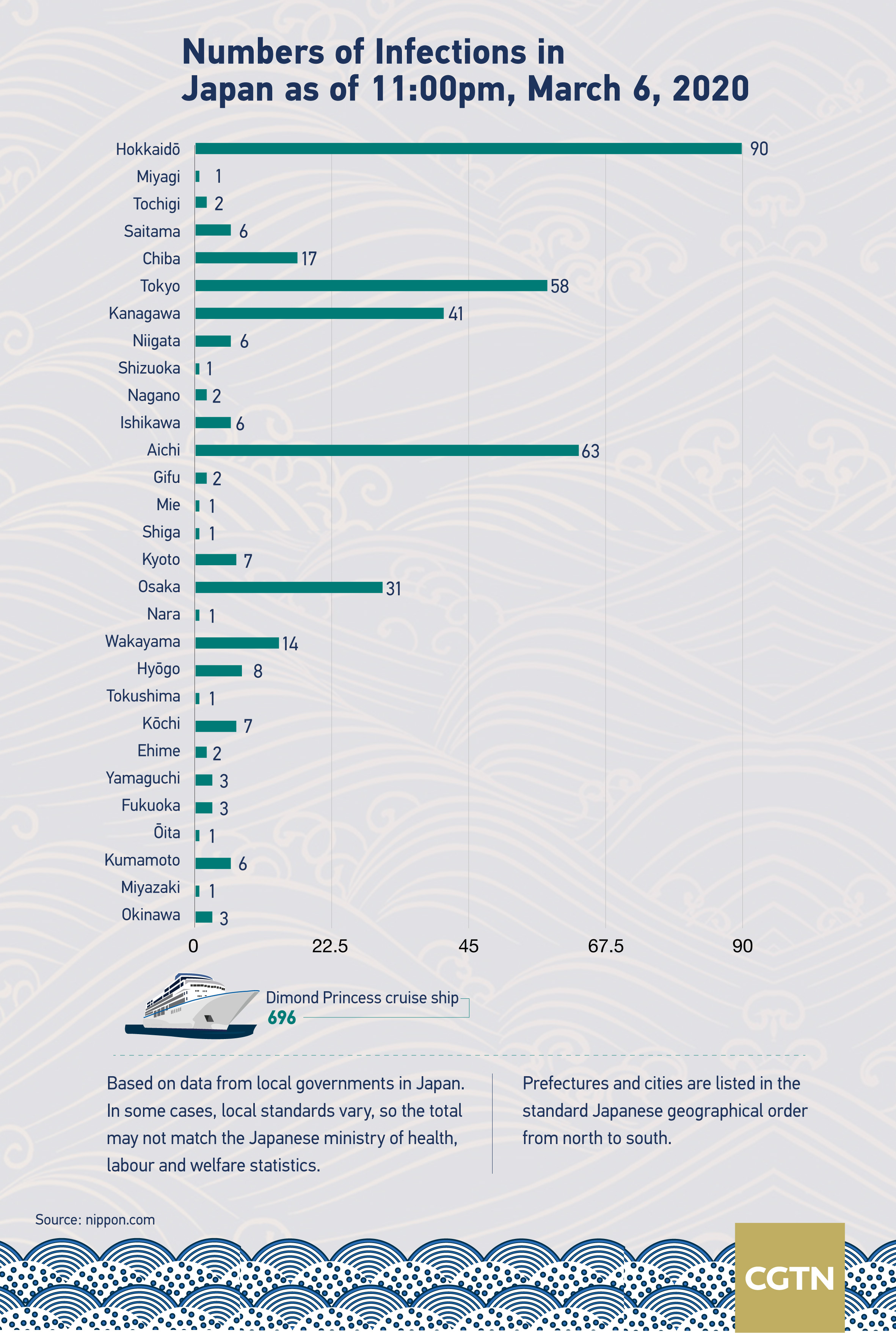
Cautionary tale in Olympics year
In the summer of 1964, Tokyo hosted its first Olympic games. That was a glorious moment when it stood up in front of the international community showcasing a new Japan 19 years after WWII. Tokyo used the chance to show high-speed bullet trains, booming auto industries, the city's stunning skylines and proved Japan was back as a recovered industrious nation.
The 2020 Tokyo Olympics is seemingly of similar significance given the timing – Japan needs such a headline to win back the world's confidence. Japan has suffered an economic crash, deflation and "lost decades" in the last 20 years. The Fukushima nuclear crisis in 2011 further weakened its international image.
After nine years of recovery after the Fukushima Daiichi nuclear radiation accident, Japan finally managed to catch a breath. The country is eager to brand itself as a safe and sound international destination. Six years ago, during Tokyo's bid for the Olympic games, Prime Minister Shinzo Abe assured the international community that the aftermath was "under control." However, at the beginning of 2020, the country was labeled dangerous again due to the COVID-19 epidemic.
For an island country that has experienced countless natural disasters, Japan usually stays abnormally calm in the face of crisis. But this time, Japan was caught off guard when 17 percent of people on board the Diamond Princess cruise ship contracted the novel coronavirus.
The Olympics year is on the edge of abortion.
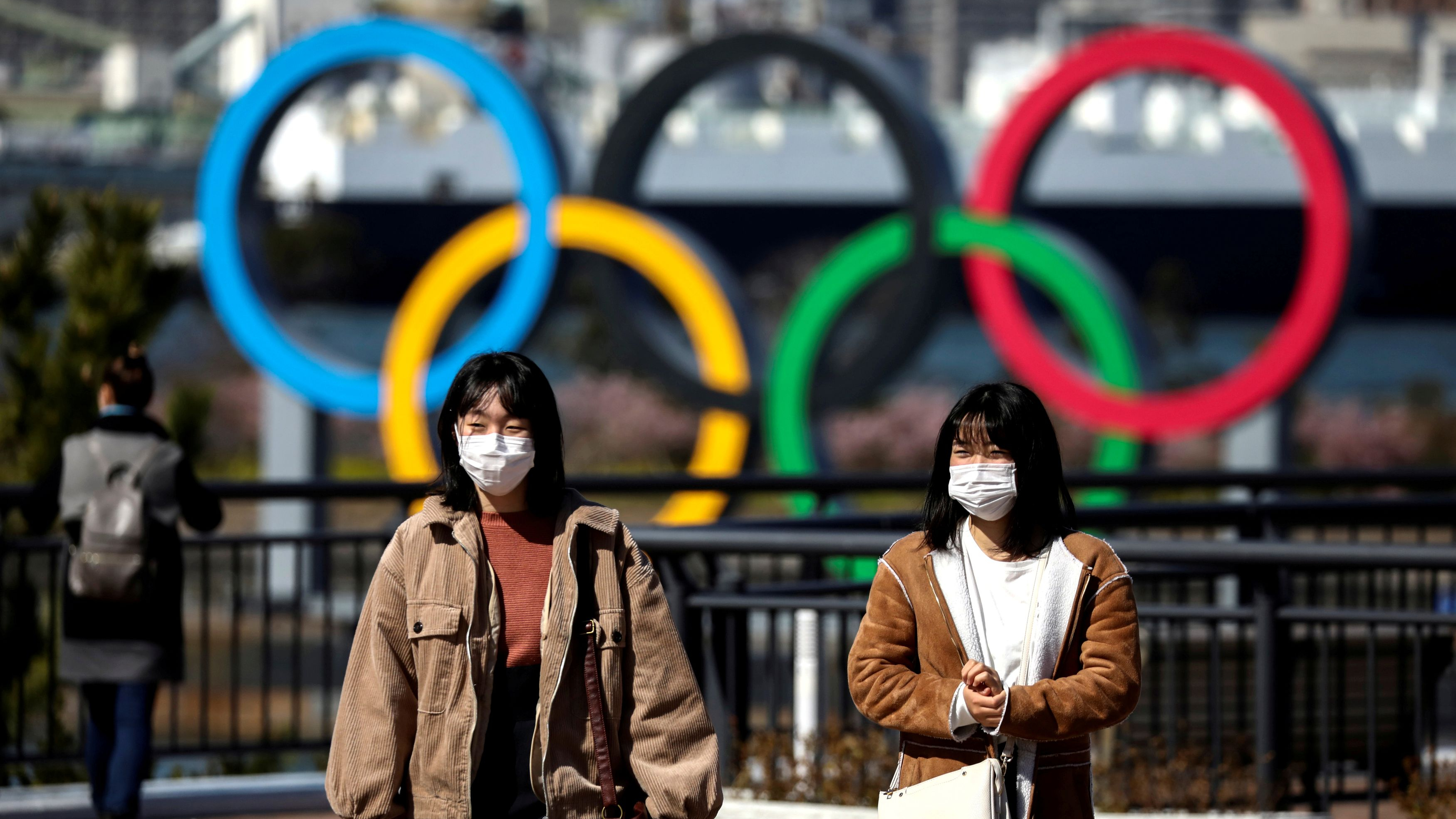
The 2020 Tokyo Olympic Games is of big significance for Japan. /AP
The 2020 Tokyo Olympic Games is of big significance for Japan. /AP
In an interview with Xu Jingbo, head of the Japan bureau of the Asian News Agency, he said Japanese people are quite self-conscious and sensible. They are used to taking care of things on their own when it comes to big social issues. Japan pursues a "small government, big society," which is effective given the country's limited resources and frequent disasters.
"People did some panic buying at the early stage of the epidemic, but it only lasted two days. They take in the information through multiple-level government press conferences, though some working parents do meet trouble taking care of kids who are suggested to study at home. But in all, residents are willing to trust government. After all, the 2020 Olympics and Paralympics signify much glory and hope to Japanese people.”
Read more: Tokyo Olympics hold test event without fans or top athletes, only amateurs to test facility
Japan overloaded
While 700 cases have been found among those on the Diamond Princess cruise ship anchored at Yokohama Port, Japan's total confirmed cases reached 1,000 by March 4 – the fourth-highest number of COVID-19 infections in the world outside China.
Xu said that the greater Tokyo bay area is already overloaded due to these 700 cases from the cruise ship. Limited testing kits and wrong estimation of the situation led to "growing anxiety around the country currently." The Abe government has therefore been widely criticized for insufficient containment measures, late responses and lack of leadership.
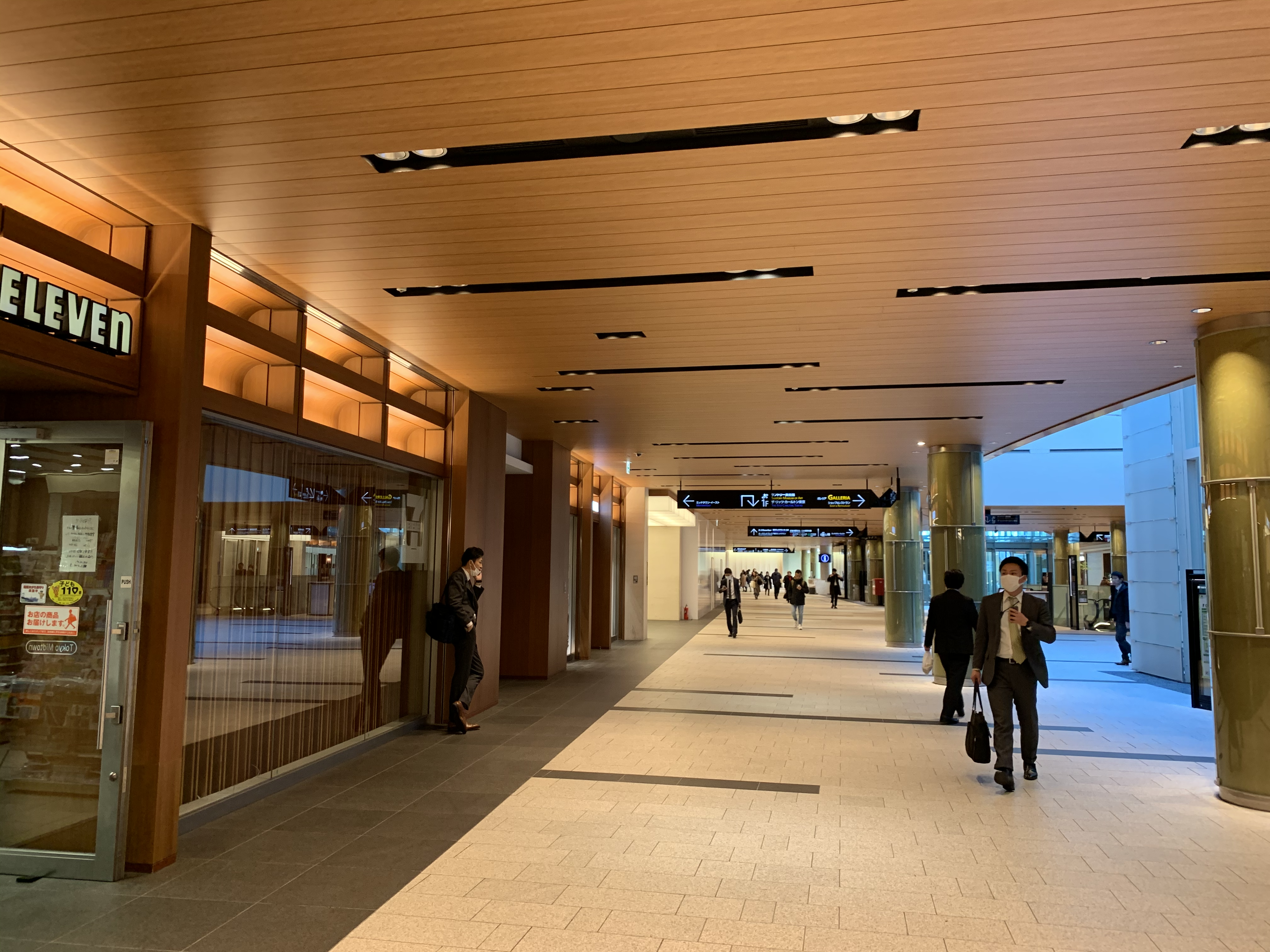
A subway station in Tokyo. /CGTN
A subway station in Tokyo. /CGTN
In Japan, only about 400 hospitals are equipped with infectious disease clinics that can provide 1,758 beds, according to data from Japanese Ministry of Health, Labor, and Welfare (WHLW). Yet the capital city area itself has over 36 million people living there. While many elderly patients are hospitalized, beds and basic facilities are absolutely in short supply for the infected people. No wonder the Japanese government is urging people to self-quarantine even before testing them.
According to the Health Ministry's guidelines, people need to get tested if they have cold-like symptoms, a fever of 37.5 degrees Celsius and higher, or feel extreme fatigue or get breathing problems, like dry cough, for four days or more. In the meantime, they should self-quarantine.
Therefore, while the announced infection rate is already high, the actual number is likely to be higher.
"Considering the limited diagnostic capabilities in this area, Japanese government has provided additional monetary supports for small hospitals and private medical centers to set fever clinics. Social entities and private business could help more if they get financing boost,” Xu said.
"Abe has pledged funding to compensate working parents who must take time off to look after children affected by nationwide school closures. Though 40 percent of residents believe the closure is too late. The fiscal 2020 budget may be revised to secure an additional budget for economic measures to ease the adverse impacts regarding this COVID-19 crisis in Japan.”
Read more: China to remain in communication with Japan over Xi's visit
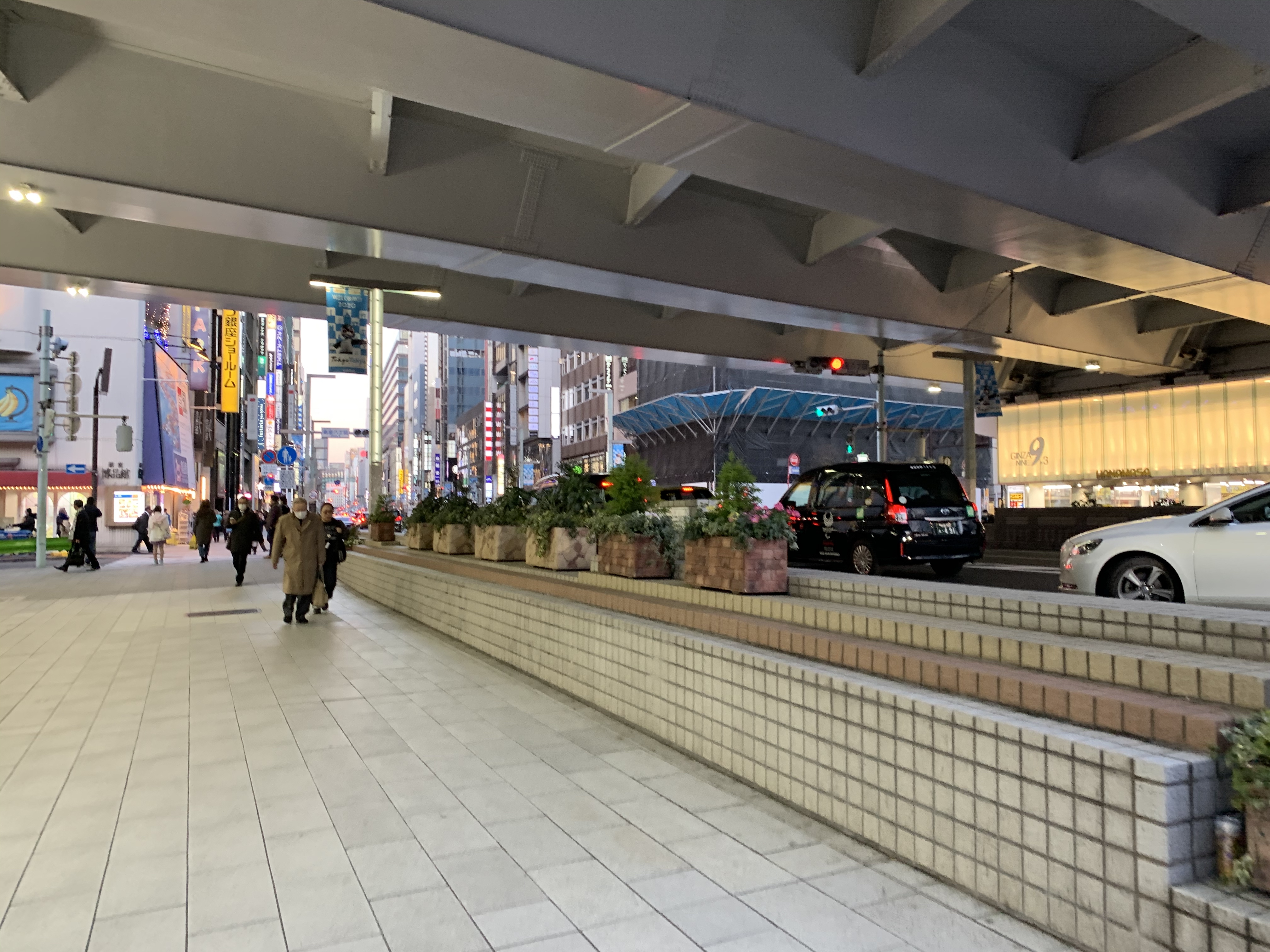
A shuttle bus stop that used to be very crowded near Ginza, Tokyo is now almost empty. /CGTN
A shuttle bus stop that used to be very crowded near Ginza, Tokyo is now almost empty. /CGTN
Growing concern
The first case in Japan was reported on January 16, 2020. And it's spreading.
Xu told CGTN that the bottom line for Japanese government is "three principles:" contain massive outbreak, prioritize critical cases, balance economy and social order. "Most patients are from Diamond Princess, Hubei Province and the evacuation from Wuhan, currently. However, the trend is not optimistic as Hokkaidō Governor Suzuki Naomichi declared a state of emergency on February 28."
Takaji Wakita, head of the National Institute of Infectious Diseases, told the media that Japan was in the initial stages of the outbreak and could see cases continue to spread. According to him, the peak will come in April or May. So far, the government has found cases of patients with no history traveling to a location with confirmed COVID-19 cases or known contact with a person with a confirmed COVID-19 case. Community transmission may have already started in Japan.
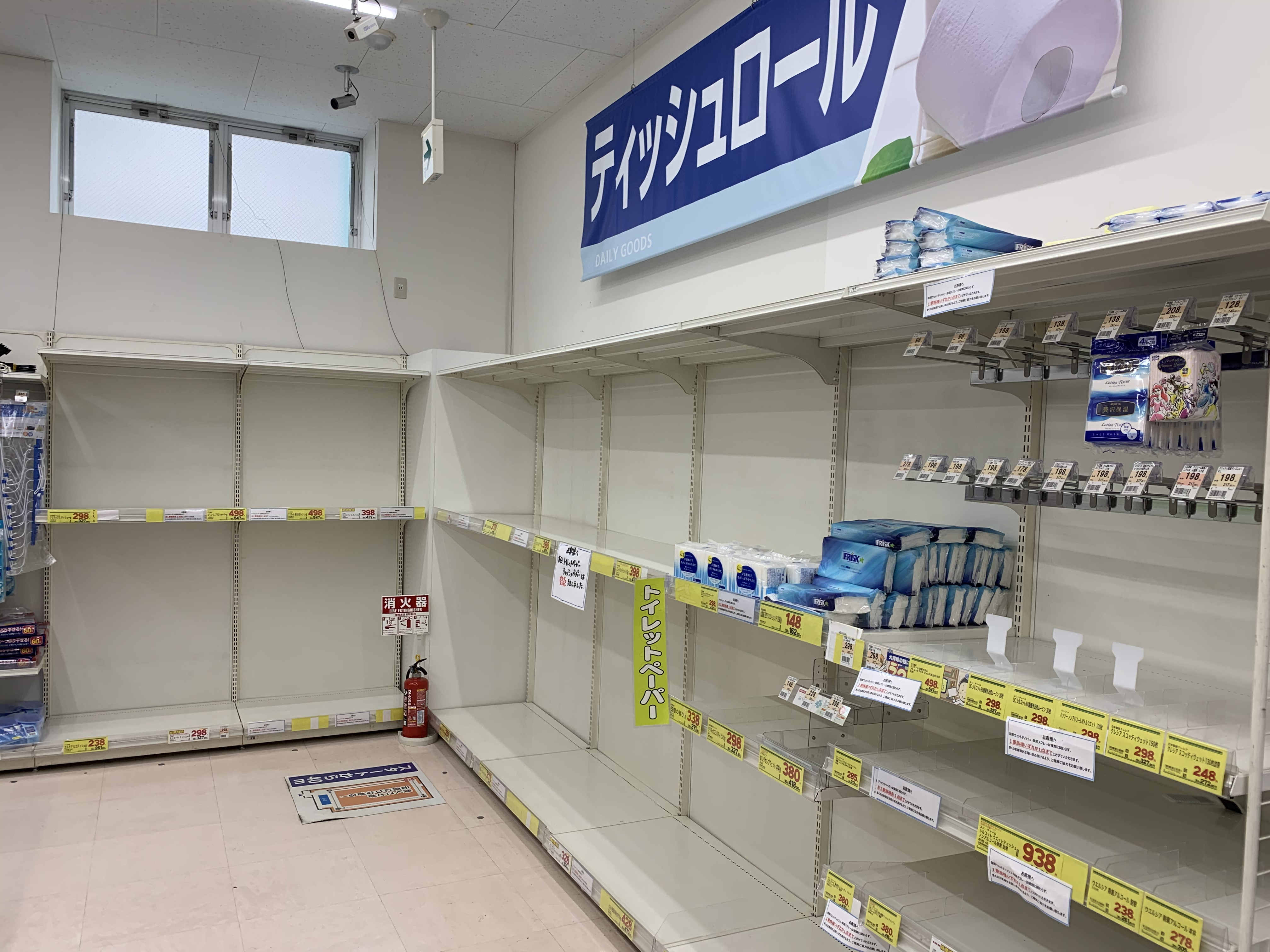
Toilet paper is out of stock in a drug store in Tokyo. /CGTN
Toilet paper is out of stock in a drug store in Tokyo. /CGTN
Legally, Japan lists diseases including the SARS, MERS, H5N1 and H7N9 viruses as Class II designated disease. The COVID-19 was classified within this group too. The designation gives the government legal power to take the same levels of precautions that can be implemented for Class II diseases. However, only those 400 authorized hospitals with infectious disease clinics are capable to perform treatment, and the medical costs for such patients will be funded by the taxpayer.
"Luckily, local governments and the medial agree on current containment measures under a legal framework. Both the administration and epidemiology experts believe that controlling an explosion of outbreak is the first priority now," Xu said in the interview.
Read more: Japan to quarantine visitors from China, South Korea over coronavirus
Read more: Graphics: Where are the Diamond Princess evacuees?